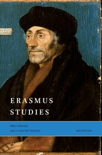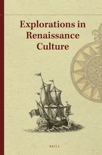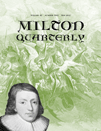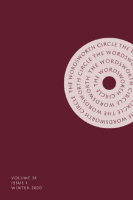
Seizieme Siecle
Scope & Guideline
Illuminating the Past: Critical Perspectives on 16th Century Culture
Introduction
Aims and Scopes
- Exploration of Renaissance Literature:
The journal publishes research that delves into the literary outputs of the 16th century, including poetry, drama, and prose, highlighting the works of key figures such as Ronsard, Du Bellay, and Rabelais. - Historiographical Analysis of the 16th Century:
A significant focus is placed on the historiographical narratives and interpretations of the 16th century, particularly around themes like the Reformation, wars of religion, and political dynamics. - Cultural Studies and Theatrical Practices:
The journal investigates cultural practices of the time, especially in the realm of theatre, including the performance of mysteries and the societal implications of such theatrical expressions. - Interdisciplinary Methods:
Research often employs interdisciplinary methodologies, combining literary analysis with historical, philosophical, and theological perspectives to provide a deeper understanding of the period. - Digital Humanities Engagement:
Recent publications indicate a growing interest in the application of digital humanities tools, such as the editorial redesign of historical texts, to enhance the accessibility and understanding of 16th-century works.
Trending and Emerging
- Digital Humanities and Editorial Practices:
There is a notable trend towards utilizing digital tools for the analysis and presentation of 16th-century texts, exemplified by works that focus on the editorial redesign of historical correspondence. - Exploration of Mysteries and Performance:
An increasing number of papers examine the cultural significance and organization of theatrical mysteries, highlighting their role in societal commentary during the 16th century. - Interdisciplinary Approaches to Literature and History:
Recent publications show a growing tendency to merge literary analysis with historical context, emphasizing how cultural artifacts reflect and influence contemporary societal issues. - Focus on Women and Gender in Renaissance Literature:
Emerging themes include a closer examination of female figures in literature, reflecting broader trends in gender studies and the role of women during the Renaissance. - Reflections on Linguistic and Cultural Identity:
Research is increasingly addressing themes of vernacular exegesis and the defense of national languages, showcasing a cultural renaissance and the interplay between language and identity in the 16th century.
Declining or Waning
- Theological Debates and Eschatology:
While theological themes, particularly those concerning the Antichrist, were previously prevalent, recent issues show a waning interest in these debates, indicating a potential shift towards more secular or cultural studies. - Historical Narratives of Conflict:
Although the journal has published works on the religious wars and political conflicts of the 16th century, the frequency of such topics has decreased as more researchers appear to prioritize cultural and literary analyses. - Focus on Classical Texts and Philology:
There seems to be a decline in papers specifically dedicated to classical texts and philological studies, as emerging themes lean more towards contemporary interpretations and digital methodologies. - Regional Studies of Specific Provinces:
Papers focusing on narrow regional studies, such as specific provinces during the Renaissance, are less common now, suggesting a broader, more thematic approach is favored in recent research.
Similar Journals

THEATRE NOTEBOOK
Fostering Insight and Innovation in Theatre ResearchTHEATRE NOTEBOOK is a distinguished journal published by the Society for Theatre Research, focusing on the rich and diverse field of theatre studies. With an ISSN of 0040-5523 and an E-ISSN of 2051-8358, this journal serves as a crucial platform for scholars, practitioners, and enthusiasts to explore theatrical practices, historical contexts, and critical analyses. Although currently not operating under an open access model, it remains an invaluable resource for advancing discourse in performance studies. Often regarded as a key publication in its field, THEATRE NOTEBOOK encompasses a variety of topics, from contemporary theatre critiques to historical retrospectives, fostering a deeper understanding of the theatrical arts. Throughout its publication history, including coverage from 2002 to 2008 and 2010 to 2011, the journal has upheld a commitment to scholarly rigor and innovation, making it an essential reading for anyone dedicated to the study and appreciation of theatre.

Erasmus Studies
Exploring the Renaissance: Unveiling Erasmus' Enduring LegacyErasmus Studies, published by BRILL, is a notable journal dedicated to the interdisciplinary exploration of historical and philosophical perspectives, primarily focusing on the life and works of Erasmus of Rotterdam and their impact through the ages. With an ISSN of 0276-2854 and an E-ISSN of 1874-9275, this journal serves as a critical resource for researchers and scholars in the fields of History and Philosophy, currently classified as Q4 in both categories for the year 2023. The journal's publication history spans from 1981 to the present, highlighting its long-standing commitment to academic discourse. Located in the Netherlands, at PLANTIJNSTRAAT 2, P O BOX 9000, 2300 PA LEIDEN, Erasmus Studies provides a platform for original research, comprehensive reviews, and scholarly discussions that foster a deeper understanding of the intellectual currents shaped by Erasmus and his contemporaries. Although it does not currently offer open access, it remains an essential tool for academics seeking to engage with the rich nuances of Renaissance thought and its ongoing relevance in today's philosophical landscape.

Itineraria
Diving Deep into the Richness of Human ExperienceItineraria is an esteemed academic journal dedicated to the exploration of historical and cultural landscapes, primarily focusing on the intricate narratives within the realms of Arts and Humanities, Classics, and History. Published by SISMEL EDIZIONI GALLUZZO, this journal serves as a vital platform for scholars and researchers from a diverse array of disciplines to disseminate innovative research and foster meaningful discourse. Though currently classified in the Q4 quartile across various categories, Itineraria progressively seeks to elevate its impact and relevance in academic circles, boasting converged publication years from 2019 to 2023. The journal's commitment to rigorous academic standards is reflected in its integration within recognized databases, while offering a unique perspective on historical and contemporary issues. While the journal does not have open access options at this time, it remains a critical resource for those endeavoring to deepen their understanding of the intricate links between culture and history in an engaging and scholarly manner. The journal is based in Italy, contributing to a rich academic tradition.

Studia Aurea-Revista de Literatura Espanola y Teoria Literaria del Renacimiento y Siglo de Oro
Connecting Scholars Through Open Access Literary InsightsStudia Aurea-Revista de Literatura Espanola y Teoria Literaria del Renacimiento y Siglo de Oro, published by the esteemed Universitat Autònoma de Barcelona, stands as a pivotal academic resource in the fields of Literature and History, specializing in Spanish literature from the Renaissance and the Golden Age. With its Open Access model established since 2007, this journal ensures that groundbreaking research is readily available to scholars and enthusiasts worldwide. Notably recognized for its quality, in 2023 it achieved Q1 rankings in both History and Literature and Literary Theory, reflecting its significant contribution to advancing knowledge in these domains. The journal's Scopus rankings further underscore its impact, placing it in the top 20% for literature and the top 37% for history. As it converges from 2018 to 2023, Studia Aurea continues to facilitate critical discussions, innovative research, and the exploration of literary theories, making it an essential platform for researchers, professionals, and students alike.

Explorations in Renaissance Culture
Where History Meets Art in Renaissance ExplorationExplorations in Renaissance Culture, published by BRILL, is a pivotal academic journal that delves into the multifaceted aspects of Renaissance studies, encompassing Cultural Studies, History, Literature and Literary Theory, Music, Philosophy, and the Visual Arts. Established in 1976 and operating without an open access model, the journal has evolved as a critical platform for scholars and enthusiasts alike, providing rigorous analysis and innovative perspectives on the cultural currents of the Renaissance era. With an ISSN of 0098-2474 and an E-ISSN of 2352-6963, it has garnered a respectable standing among academic peers, evidenced by its quartile ranking in the Q4 category across multiple fields as of 2023 and its Scopus rankings, which acknowledge its role within the broader arts and humanities disciplines. Based in the Netherlands, the journal plays a vital role in fostering scholarly dialogue and advancing research, making it an essential resource for researchers, professionals, and students committed to expanding their understanding of this transformative period in history.

TWENTIETH CENTURY LITERATURE
Uncovering Voices That Shaped a CenturyTWENTIETH CENTURY LITERATURE is a renowned journal published by Hofstra University Press, dedicated to the exploration and analysis of literature and literary theory from the twentieth century. With a focus on both established and emerging voices in the field, this journal serves as an essential resource for researchers, professionals, and students who seek to deepen their understanding of significant literary movements and trends. The journal holds an impressive Q2 category ranking in Literature and Literary Theory as of 2023, showcasing its impact and relevance in the academic community. Though not an open access journal, it provides valuable insights and scholarly discussions that contribute to ongoing debates in literature studies. Covering a converged period from 2002 to 2014 and continuing from 2016 to 2024, TWENTIETH CENTURY LITERATURE positions itself as a pivotal platform for thought-provoking literature critique and scholarly inquiry, making it an indispensable addition to any academic library or personal collection.

Artibus et Historiae
Fostering Critical Conversations in Art HistoryArtibus et Historiae is a distinguished academic journal published by IRSA PUBLISHING HOUSE, focusing on the fields of Visual Arts and Performing Arts within the broader scope of Arts and Humanities. With an ISSN of 0391-9064, this journal has become a crucial platform for the dissemination of scholarly research, critical discourse, and innovative ideas in art history and visual culture. Though its coverage in Scopus was discontinued in 2018, it maintained a respectable ranking of #279 out of 502 in its category, placing it in the 44th percentile. This positions Artibus et Historiae as a respected contributor to scholarly conversations in its field. Researchers, professionals, and students will find valuable insights and analyses that deepen their understanding of artistic practices and historical contexts. While not an open-access journal, it aims to bridge the gap between academia and broader audiences interested in the dynamic interplay of art and history.

Criticon
Cultivating a community of innovative thinkers in History and Literature.Criticon is a distinguished open-access journal published by PRESSES UNIV MIDI-PUM in France, dedicated to advancing scholarship in the fields of History and Literature and Literary Theory. Since its transition to open access in 2014, Criticon has fostered a vibrant academic community, enabling the dissemination of high-quality research that contributes significantly to contemporary discourse. Positioned within the Q4 categories for both History and Literature, the journal boasts impressive rankings, including #152 out of 1106 in Literature and Literary Theory, reflecting its growing influence with a remarkable 86th percentile standing. With a dedication to interdisciplinary scholarship, Criticon invites researchers, practitioners, and students to submit original articles that explore the intersections of literary and historical narratives, thereby enriching the understanding of cultural and intellectual history. Located at 5 ALLEES ANTONIO MACHADO, F-31058 TOULOUSE, FRANCE, this journal not only serves as a platform for new voices but also as a beacon for established scholarship in the humanities.

MILTON QUARTERLY
Connecting Past and Present in Literary TheoryMILTON QUARTERLY, published by Wiley, is a premier academic journal in the field of Literature and Literary Theory. Since its inception in 1967, it has become a leading platform for scholarly discourse, focusing on the works and influence of John Milton and extending to broader themes in literary studies. With an impressive Q1 ranking in its category, the journal is recognized for its high-quality peer-reviewed articles and contribution to advancing literary scholarship. Although it currently does not offer open access options, its impact in the academic community is undeniable, boasting publications that resonate well beyond its pages. The journal is an invaluable resource for researchers, professionals, and students alike, keen on exploring the intersections of literary theory, history, and criticism, making significant contributions to the understanding of literature throughout the centuries.

WORDSWORTH CIRCLE
Illuminating Literary Landscapes with Rigorous AnalysisWORDSWORTH CIRCLE, an esteemed journal published by University of Chicago Press, serves as a pivotal platform for scholars and enthusiasts in the fields of Cultural Studies and Literature and Literary Theory. With a firm foundation established from 2002 and expected to continue through 2024, the journal is recognized for its rigorous scholarship, evident in its prestigious ranking of Q1 in Literature and Literary Theory and Q2 in Cultural Studies for the year 2023. Although it is not an open-access journal, its valuable contributions to the discourse surrounding literary analysis and cultural critique make it a significant resource for researchers, students, and practitioners seeking to deepen their understanding of these dynamic fields. The journal's ISSN is 0043-8006, and it operates out of Chicago, IL, with its influence resonating across academic institutions and literary circles globally. By bridging historical perspectives and contemporary discussions, WORDSWORTH CIRCLE remains an essential publication for those dedicated to exploring the complexities of literature and culture.